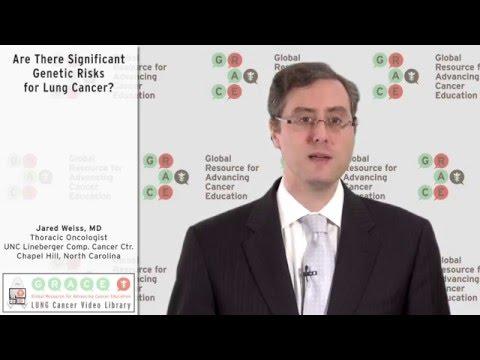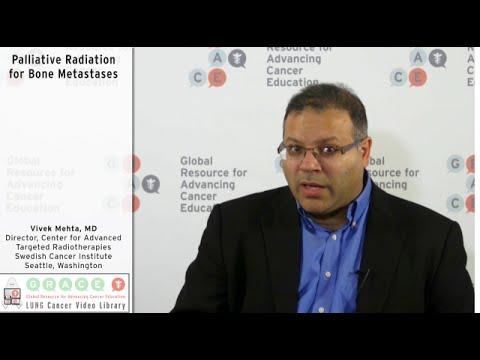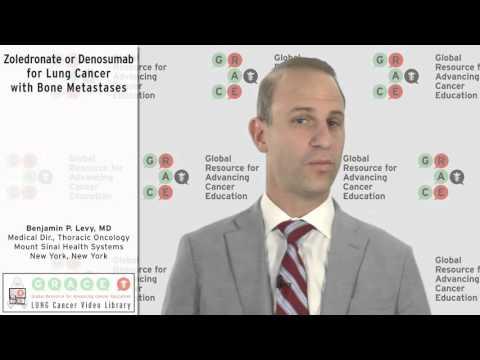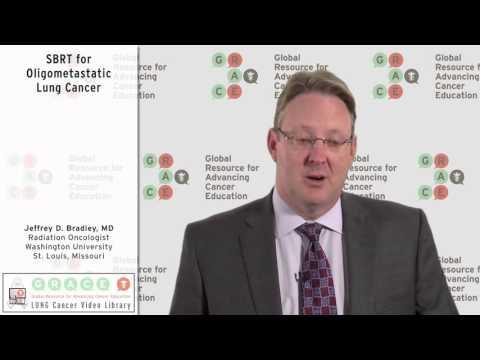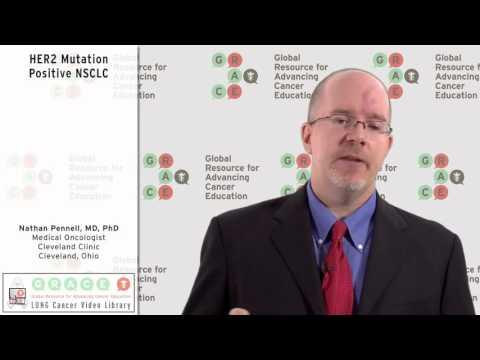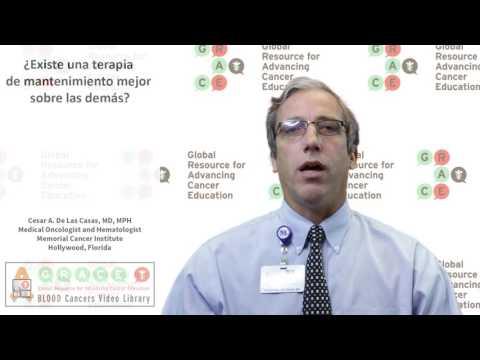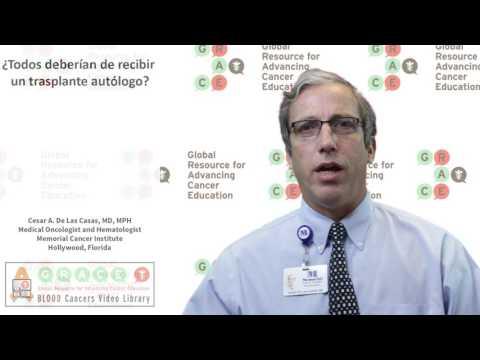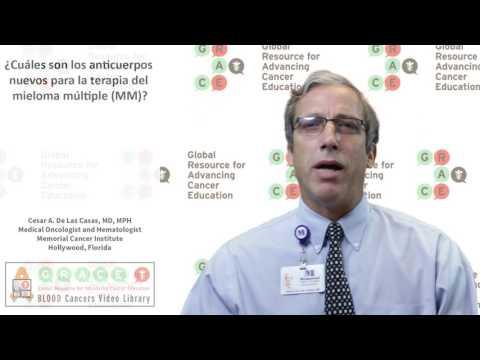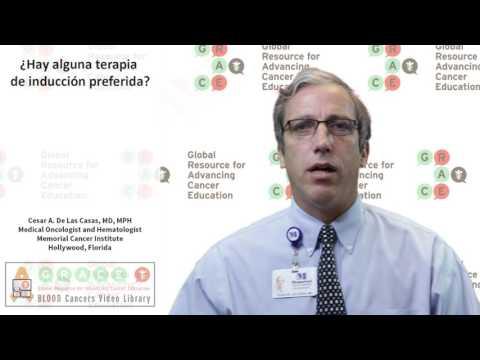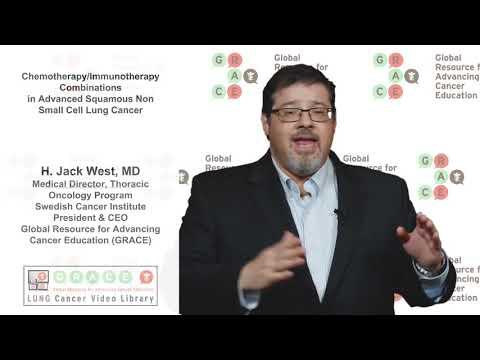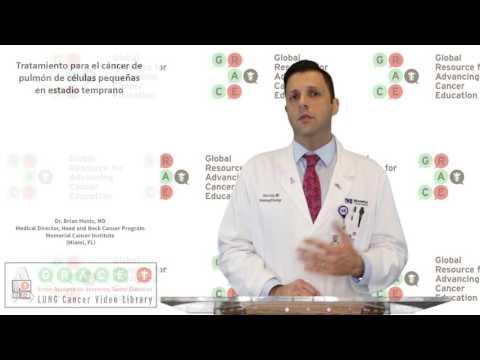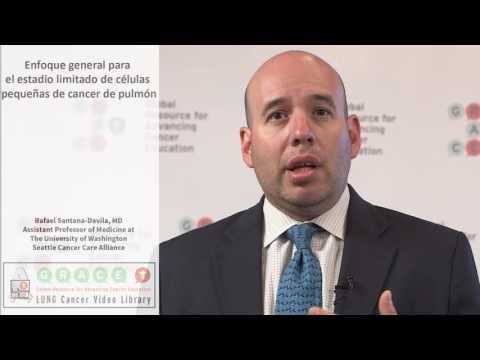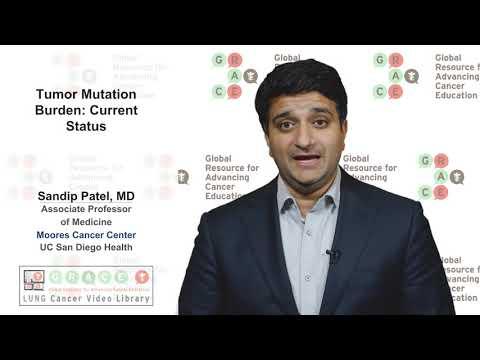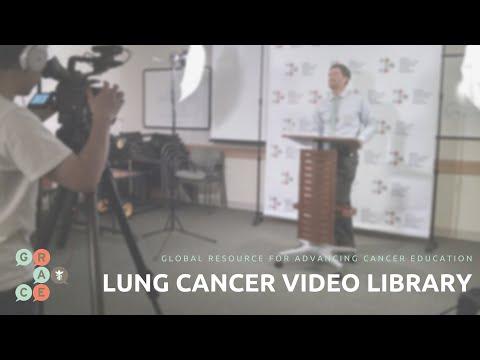Dr. Jared Weiss, UNC Lineberger Comprehensive Cancer Center, discusses the genetic risk (or lack thereof) for lung cancer.
Video Library
Search the Video Library
Video Language
Filter by Cancer Type:
Displaying Results 1 - 15 of 37
Radiation therapy can be very helpful in treating painful bone metastases or those at risk for causing a fracture due to compromise of bone strength. Dr. Vivek Mehta reviews the basics of this approach. Please feel free to offer comments and raise questions in our Discussion Forums. Transcript
Dr. David Harpole, Duke University Medical Center, describes how he assists patients with the surgical decision-making process.
Transcript One of the important points about patients with advanced lung cancer is that 30-40% of patients will develop bone metastases. I think it’s important to recognize this is not bone cancer, this is lung cancer that’s moved to the bone, and in 30-40% of patients at some point who have
Dr. Jeffrey Bradley, Radiation Oncologist at Washington University in St. Louis, defines oligometastatic lung cancer and describes the recent trend toward the use of stereotactic body radiation therapy to treat it.
Dr. Nathan Pennell, Cleveland Clinic, describes treatment of NSCLC patients with HER2 mutations using agents such as Gilotrif or Herceptin.
GRACE sat down with Cesar A. De Las Casas, MD, MPH, to discuss information regarding if there is a best maintenance therapy (¿Existe una terapia de mantenimiento mejor sobre las demás?). Stay tuned for more on our continuing video series with our Spanish speaking faculty on updates in blood cancer
GRACE sat down with Cesar A. De Las Casas, MD, MPH, to discuss information regarding whether all patients should receive an autologous transplant (¿Todos deberían de recibir un trasplante autólogo?). Stay tuned for more on our continuing video series with our Spanish speaking faculty on updates in
GRACE sat down with Cesar A. De Las Casas, MD, MPH, to discuss information regarding the new antibodies for multiple myeloma (MM) therapy (¿Cuáles son los anticuerpos nuevos para la terapia del mieloma múltiple (MM)?). Stay tuned for more on our continuing video series with our Spanish speaking
GRACE sat down with Cesar A. De Las Casas, MD, MPH, to discuss information regarding if there a preferred induction therapy (¿¿Hay alguna terapia de inducción preferida?). Stay tuned for more on our continuing video series with our Spanish speaking faculty on updates in blood cancer treatments, and
Dr. H. Jack West, Medical Director, Thoracic Oncology Program, Swedish Cancer Institute, President and CEO of GRACE offers updates to our Lung Cancer Video Library. In this video, Dr. West discusses chemotherapy and immunotherapy combinations in advanced squamous non-small cell lung cancer. We thank
For our 14th video in the GRACE Spanish Lung Cancer Library, Brian Hunis, MD joined GRACE to discuss treating early stage small cell lung cancer.
GRACE is pleased to welcome Dr. Rafael Santana-Davila, Assistant Professor with the University of Washington School of Medicine and Seattle Cancer Care Alliance. Dr. Santana-Davila joined GRACE to discuss the general approach to limited stage SCLC.
Dr. Sandip Patel, Associate Professor of Medicine at the Moores Cancer Center, UC San Diego Health, joined GRACE to offer updates to our Lung Cancer Video Library. In this video, Dr. Patel discusses the current status of tumor mutation burden. We thank the following organizations for their support
For this addition to the Lung Cancer Video Library, Dr. Millie Das joins GRACE to discuss current updates in treatment options for non small cell lung cancer. In this video, Dr. Das discusses the current leading treatment options for patients with low or negative tumor PDL1 expression and advanced

